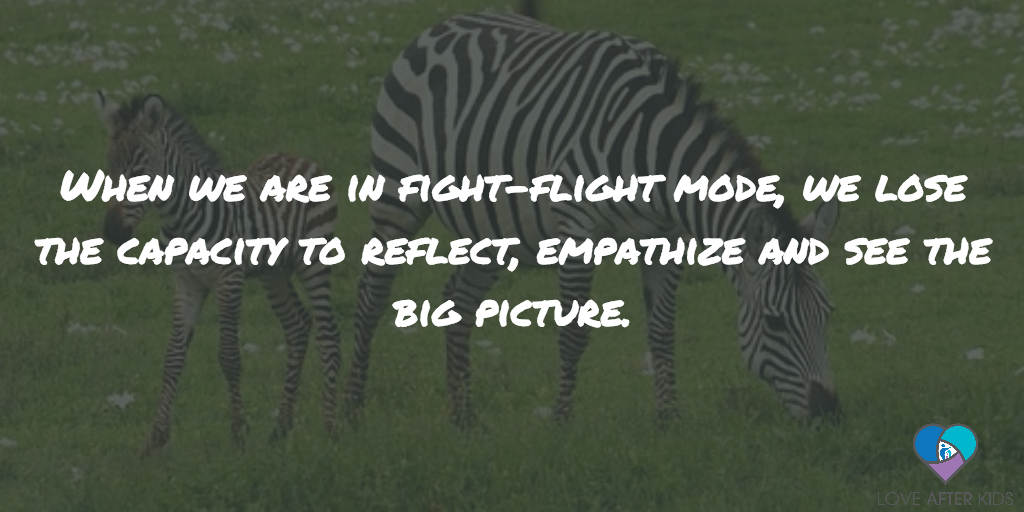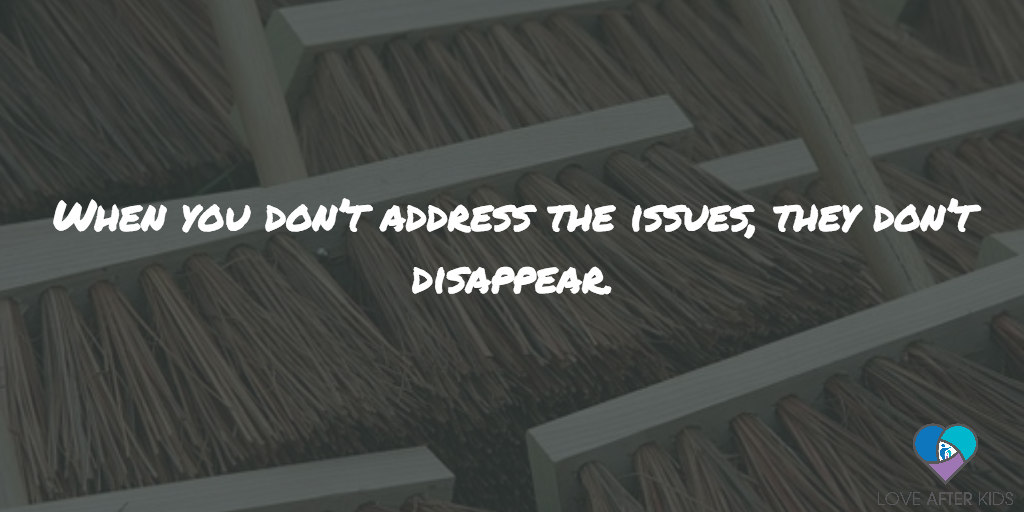One of the worst things about being in the middle of a fight with your partner is how it can feel like there’s no way out.
No matter how many times you have been through it before, that feeling of hopelessness and doom and gloom can always manage to finagle it’s way back in there.
- This is it.
- There’s no going back.
- I’d be better off if…
- They’d be better off if…
- We’re too different.
Here are some common feelings that can manifest:
- Sad
- Lonely
- Angry
- Hopeless
- Despair
Why does that happen?
A big reason is that when we’re in the thick of it, our sympathetic nervous systems take control. We go into fight-flight mode.
When we are in fight-flight mode, our bodies and brains prepare to attack, defend and/or run away in response to a threat.
When we are in fight-flight mode, we lose the capacity to reflect, empathize and see the big picture.
It’s only when the threat subsides that our parasympathetic nervous systems can switch back on, and our brains and bodies know that the threat is gone and that it is safe to reflect and reconnect.
Animals in the wild are able to switch seamlessly between fight-flight and relaxation. One minute a zebra can be grazing peacefully. The next minute, it spots a lion and becomes vigilant. When the lion leaves, the zebra goes back to grazing like nothing ever happened.
We humans don’t operate that way. It’s easy for us to stay stuck in fight-flight. That is essentially what happens to people with post traumatic stress. Even though the external threat is gone, they continue operating as though it is still there.
Here are ten tips for facilitating a more zebra-like resolution:
- Sit down with your partner when you’re not fighting and come up with a code word that you can both use if you’re fighting and not ready to talk. It can be easier to say ‘frankfurter’ or ‘monster’ than ‘can you please give me some space as I am still operating very much in fight-flight mode?’
- Agree not to try to resolve anything until the dust settles some.
- A little ownership of what you are contributing to the conflict can go a long way. It usually invites the same from your partner, whereas blaming and attacking also invites blaming and attacking.
- Don’t sweep it under the rug. When you don’t address the issues, they don’t disappear.
- Make the time to talk things through. This is what makes fighting productive and much more valuable than avoiding conflict.
- Listen to each other’s perspectives and feelings.
- Apologize for hurting each other.
- Talk about what you both can try to do differently the next time.
- Apologize to your kids if they were caught in the crossfire. Don’t assume it didn’t impact them.
- Finally, be compassionate with yourself. We all make mistakes. Sometimes we make mistakes over and over and over again. It’s not about not making mistakes. It’s about learning from them.





 RSS Feed
RSS Feed